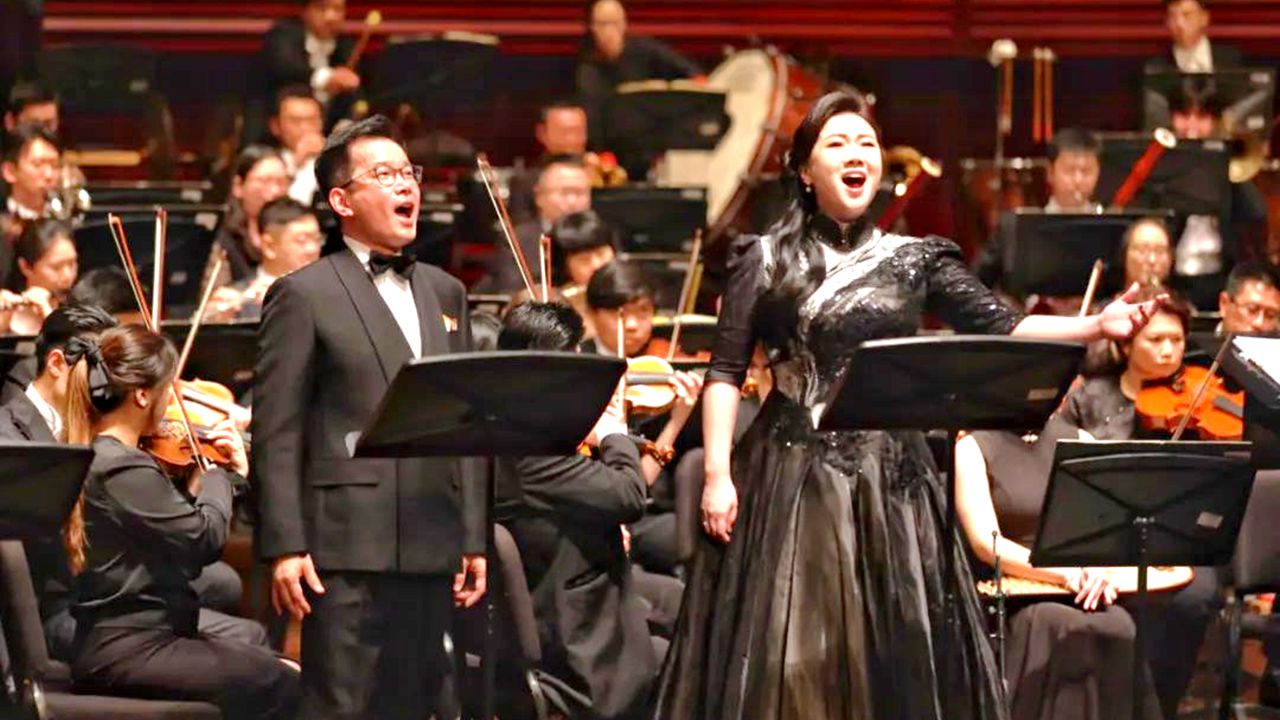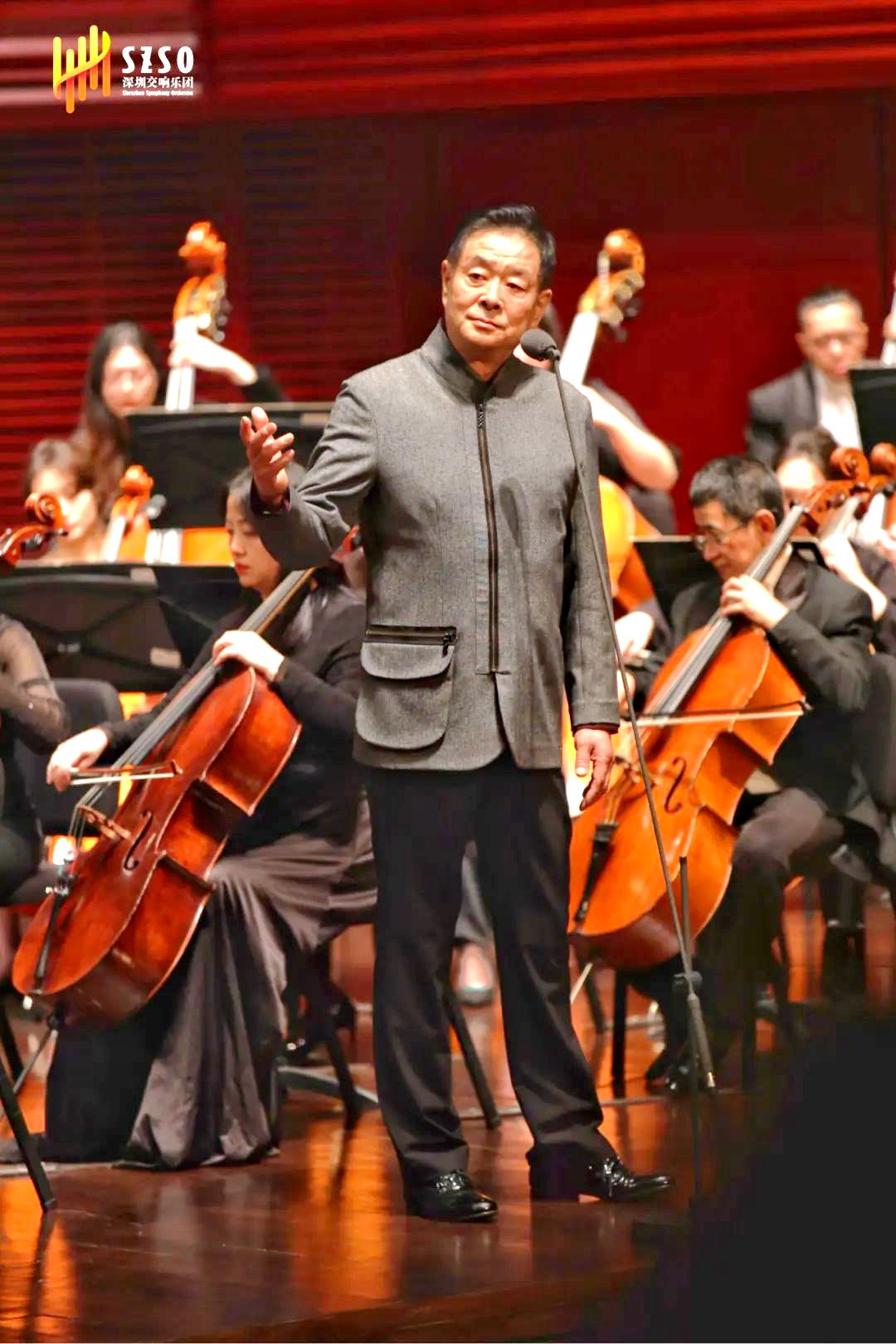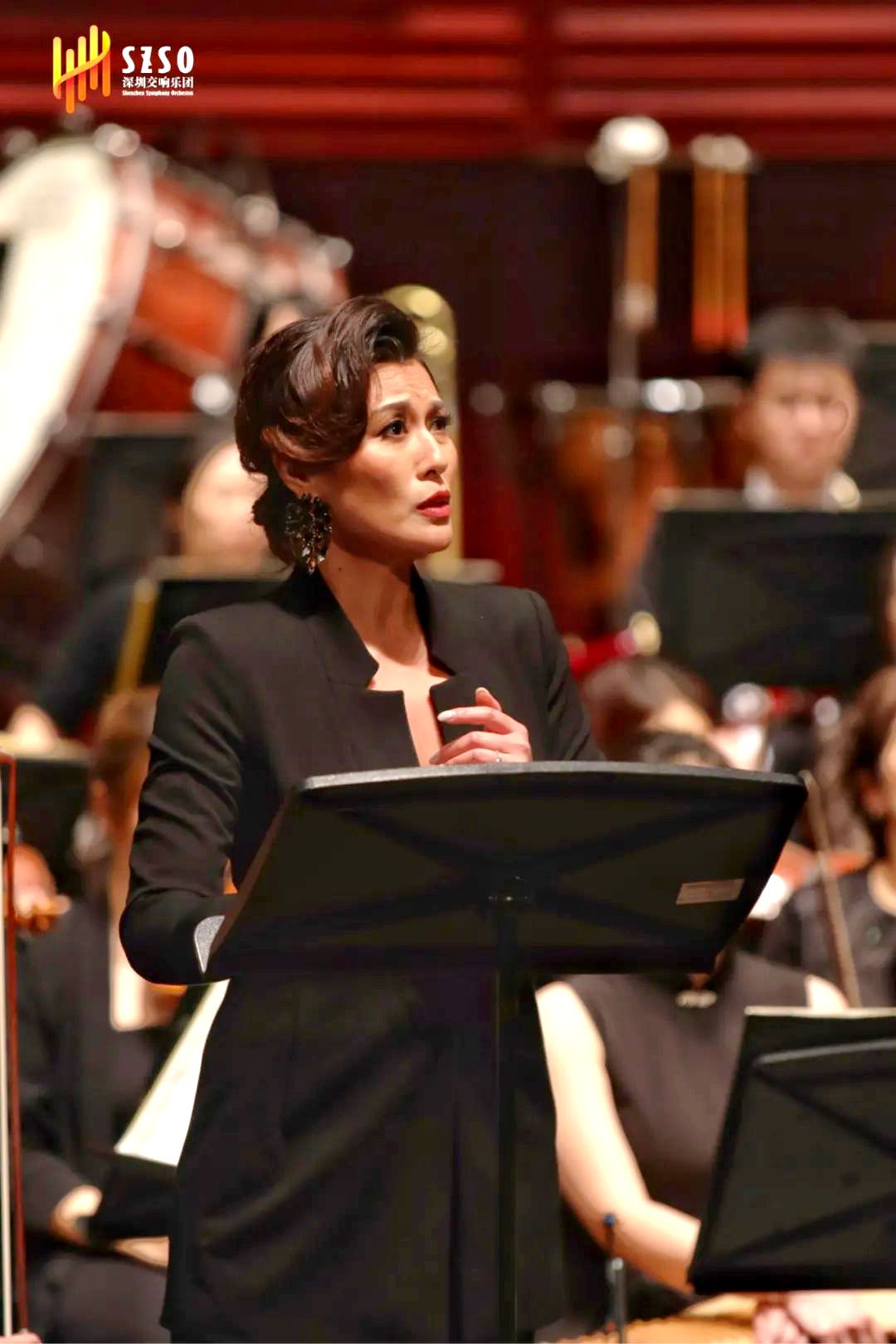Symphony 'Lu Xun' performed at sold-out concerts
Writer: Debra Li | Editor: Zhang Zhiqing | From: Original | Updated: 2025-04-03
The Shenzhen Symphony Orchestra (SZSO) premiered Chinese composer Ye Xiaogang’s fifth symphony at two sold-out concerts last week at Shenzhen Concert Hall and Guangzhou’s Xinghai Concert Hall.
Tenor Shi Yijie (L) and soprano Dai Ziyi sing a duet. Photos courtesy of SZSO
This eight-year labor of love pays tribute to Lu Xun, China’s most influential 20th-century writer.
Born in Shanghai in 1955, Ye stands among China’s foremost contemporary composers. A piano prodigy who graduated from the composition department of Beijing’s Central Conservatory of Music, he emerged as a key figure in China’s “New Wave” movement alongside Tan Dun, Chen Qigang, and Guo Wenjing, championing musical modernism. He later earned a doctorate from the Eastman School of Music and taught at Bard College in the United States.
Ye’s oeuvre bridges Chinese tradition and global modernism, creating works that resonate across cultures. From grand symphonies to intimate chamber pieces, his music engages deeply with literature, philosophy, and cultural identity.

Pu Cunxin delivers a recitation.
This nine-movement symphonic poem preserves the incisiveness and philosophical depth of Lu Xun’s writings while reinvigorating them musically. Ye masterfully blends contemporary techniques with Chinese musical elements, interweaving lyrical rural opera melodies, tense soundscapes mirroring Lu Xun’s existential inquiries, and an emotive duet portraying the writer’s romance with wife Xu Guangping. The rich musical tapestry vividly conjures Lu Xun’s literary universe.
Under SZSO music director Lin Daye’s baton, China’s finest performers collaborated for the concerts. Veteran actor Pu Cunxin delivered a powerful recitation in the fifth movement, inspired by Lu Xun’s “Wild Grass” essays, probing life’s fundamental questions.

Zhu Huiling performs a heart-wrenching aria.
International opera star Shi Yijie and rising soprano Dai Ziyi performed a poignant duet in the romance-themed eighth movement. Shi’s crystalline tenor complemented Dai’s Shenzhen debut, their musical dialogue recreating the couple’s passionate correspondence and revealing the literary giant’s tender side.
Mezzo-soprano Zhu Huiling’s heart-wrenching aria in the fourth movement gave voice to Xianglin’s Wife, one of Lu Xun’s most tragic characters, lamenting Chinese women’s suffering in the early 20th century. Talented baritones Hong Zhenxiang and Zhang Gonghao brought to life iconic literary characters like Runtu, Ah Q, and Mei Jianchi.
As the final movement faded, thunderous applause ran through the concert hall — a testament not only to the excellence of the performance but also to Lu Xun’s enduring legacy — his independent thought and lifelong pursuit of social equality.
“Lu Xun’s writings — his relentless examination of life and penetrating insights into humanity — demand musical interpretation,” Ye commented.